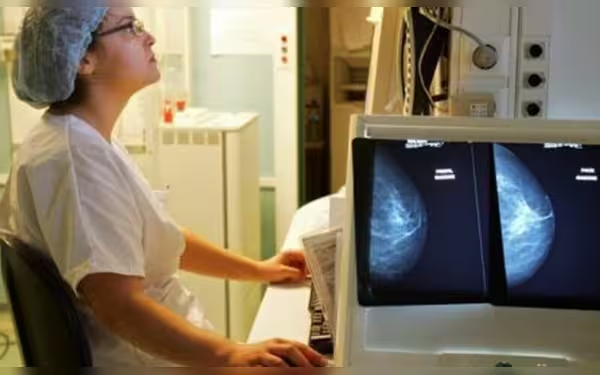Saturday, November 23, 2024 04:47 PM
Pakistan's Alarming Breast Cancer Rates Demand Urgent Action
- Pakistan has the highest breast cancer rate in Asia.
- One in nine women in Pakistan faces breast cancer.
- Early detection significantly improves survival rates.
 Image Credits: dawn
Image Credits: dawnPakistan faces the highest breast cancer rates in Asia, highlighting the urgent need for awareness and early detection to save lives.
Breast cancer is a significant health issue that affects millions of women worldwide. In Pakistan, the situation is particularly alarming, as the country has the highest rate of breast cancer cases in Asia. According to medical experts, one in every nine women in Pakistan is expected to face this disease at some point in their lives. This statistic highlights the urgent need for awareness and early detection, which can save lives.
In 2022, breast cancer was a critical health challenge globally, with 2.3 million women diagnosed and 670,000 deaths reported. Dr. Mir Waheed, the Medical Director of Maroof International Hospital, emphasized the importance of early detection during a recent breast cancer awareness campaign. He stated, "Raising awareness is crucial, but saving lives through early detection is our ultimate goal. Many patients with localized or regional breast cancer can survive for over 20 years with proper treatment." This statement underscores the vital role that timely diagnosis plays in improving survival rates.
Dr. Saira Mehmood, a Breast Cancer Surgeon at Maroof International Hospital, discussed the global impact of breast cancer, noting that in 2024, an estimated 310,720 women in the United States will be diagnosed with invasive breast cancer. She stressed that early detection is critical and that the campaign aimed to educate people about the importance of regular screenings. "Early detection saves lives," she remarked, adding that lifestyle factors such as obesity, smoking, and alcohol consumption can significantly influence the risk of developing breast cancer. Dr. Mehmood also encouraged women to perform regular breast self-examinations to identify any unusual changes.
Dr. Ayesha Amin, the Head of the Radiology Department at MIH, reinforced the importance of mammography, stating, "Breast cancer is curable if detected early. Through our sessions, we made screening programs like mammography accessible at affordable rates, encouraging more women to take proactive steps for their health." This accessibility is crucial, as many women may hesitate to seek screening due to financial constraints or lack of information.
The CEO of Maroof International Hospital, Haroon Naseer, highlighted the campaign's extensive reach, saying, "Our mission was to make a real difference by engaging a broad spectrum of society, from international organizations to marginalized communities, empowering individuals to recognize the signs of breast cancer early." The three-month breast cancer awareness campaign, which extended beyond the typical awareness month in October, aimed to educate the public about symptoms, early detection, and prevention.
Awareness sessions were conducted for various sectors of society, including less privileged communities, technical staff from small industries, and educational institutions. Partner organizations such as the Civil Aviation Authority, Bahria University, and local chambers of commerce also participated in these efforts. This collaborative approach is essential in spreading awareness and ensuring that vital information reaches those who need it most.
The fight against breast cancer in Pakistan requires a collective effort from all sectors of society. By prioritizing early detection and raising awareness, we can significantly reduce the impact of this disease. It is crucial for women to understand the importance of regular screenings and self-examinations, as these practices can lead to early diagnosis and better treatment outcomes. Together, we can work towards a future where breast cancer is no longer a leading cause of death among women in Pakistan.













